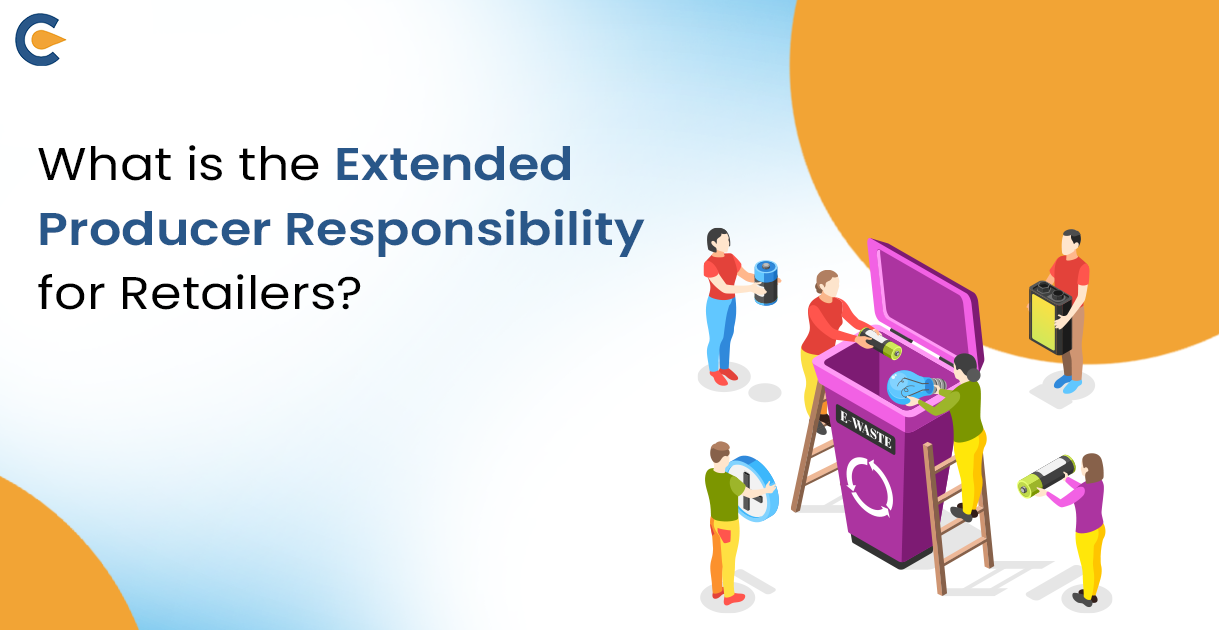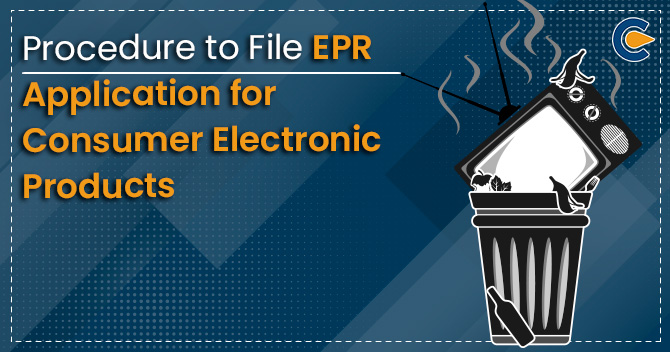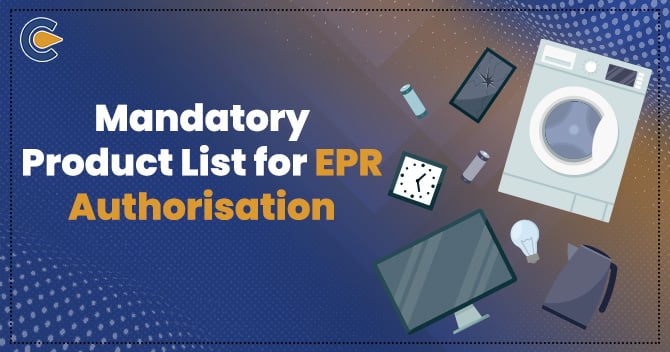Extended Producer Responsibility (EPR) is a critical legislative instrument for controlling and decreasing the growing quantity of consumer waste from goods, packaging, and paper for printing. As the name implies, the goal of EPR is to hold product makers and distributors (i.e., producers) accountable for these items and materials at the final stage of their lives. This is relevant to retailers with proprietary brands. Furthermore, when a producer does not operate in a certain area, the importer, who may also be the retailer, is frequently held responsible. EPR is designed to motivate manufacturers to minimize waste at the source, promote more circular design, and build public-private partnerships to assist in addressing waste program difficulties by embedding the expenses of end-of-life management into the initial cost of the goods.
Meaning of EPR for Retailers
Extended producer responsibility is a policy that transfers duty for post-consumer waste and recycling from local governments, commercial companies, and other end users to producers. The concept, initially developed by Swedish scientist Thomas Lindquist, aims to reduce waste at its source, encourage sustainable product design, and mitigate the harmful effects of incorrect garbage disposal on the well-being of humans and the environment as a whole.
EPR assigns accountability for a product’s whole lifespan to the maker. This includes both the production and post-consumer processes, such as appropriate disposal, recycling, and decreasing environmental effects. The theory underpinning EPR is consistent with the fundamental concepts of sustainable development and the circular economy, rendering it an essential component of global waste management initiatives.
EPR license directs manufacturers, brand owners, retailers, and distributors to assume financial and environmental responsibility for their products. This implies that only a licensed manufacturer is in charge of the collection and disposal of items through authorized recyclers. Meanwhile, a distributor and a store are responsible for collecting and recycling post-consumer items. According to the legislation, producers must take back items as they near the end of their life cycle and dispose of them properly.
Extended producer responsibility (EPR) extends the burden on the product’s maker. While a few companies have created in-house recycling systems to handle the waste plastic received, others have formed agreements with organizations that specialize in recycling and reintroducing old plastics into a new form. This approach also reduces the manufacture of new plastic, as recycled items are a safe and excellent choice for any organization.
Advantages of EPR for Retailers
Adherence with regulations: The first benefit of EPR for retailers is that EPR laws compel merchants to follow government rules governing the disposal, collection, and recycling of items they sell. By adhering to these rules and regulations, it can be ensured that the legal compliances are carried out without facing penalties or fines.
Environmental Management: The next advantage of EPR for retailers is the management of environmental standards. EPR urges merchants to actively contribute to environmental sustainability by supporting responsible product disposal and recycling. The retailer’s brand reputation as being environmentally conscious is enhanced by this engagement, which aligns with customer demands for environmentally friendly procedures.
Consumer Involvement and Loyalty: EPR for retailer scan also be beneficial for consumer involvement and loyalty. Committing to the EPR plan helps attract environmentally aware Retailers who are customers. Embrace sustainable practices and facilitate product recycling, which may earn the trust and loyalty of environmentally conscious customers.
Cost Control and Effectiveness: EPR regulations that are administered well can lead to more efficient operations and eventually reduced costs. Businesses can expect cost savings and operational advantages as a result of optimizing their recycling and waste management processes. EPR for retailers also helps in controlling costs.
Collaboration Potential: EPR for retailers increases collaboration opportunities. EPR frequently requires collaboration among merchants, manufacturers, recyclers, and regulatory organizations. By working together, the industry builds networks and relationships that could ultimately result in the development of novel ideas and uniform codes of conduct.
Prevention of Risks and Reputation Management: Active participation in EPR can reduce the risks associated with incorrect waste disposal or non-compliance. It shields the retail establishment’s brand from negative press brought on by irresponsible environmental practices. EPR for retailers prevents risks and reputation degradation.
Long-Term Sustainability: Adopting EPR shows that you are dedicated to long-term sustainability initiatives. By actively participating in responsible product lifecycle management, retailers contribute to the development of a circular economy and reduce their environmental impact. EPR for retailers assists in achieving long-term sustainability.
What are the Documents Required: EPR for Retailers
The documents required for EPR for retailers are mentioned below. The document can vary from business to business.
- Aadhar or PAN of the Authorized Person;
- PAN, GST, CIN;
- IEC (for importer) of the Company;
- DIC Registration, if required
- Process sequence diagrams (exclusively for PWPs and producers)
- SPCB/PCC consents (if the manufacturing facility has a production plant)
- A scanned copy of the official signatures.
- Cover letter;
- Geo-tagged images of the production, product dispatch, raw material storage, and plant machinery (for PWPs only)
- Other documents, as per the requirements
What is the EPR procedure for retailers?
PIBOs are required to submit an online application together with the required paperwork, fees, and information.
The following are the steps involved in EPR for retailers’ registration:
- Documentation: Verify that you have a copy of any pertinent papers on hand in the form of PDF, JPG, or PNG files before completing the application.
- Registration for access credentials: Filling out the application comes after obtaining login credentials by self-registration on the centralized site.
- Application submission: Following self-registration, the applicant will receive login information to apply. We have created separate application sites specifically for importers, brand owners, and producers. For EPR Registration, the applicant must fill out each part and provide any necessary paperwork.
- Application fee submission: The applicant must submit their registration application and application costs in one package. The payment gateway embedded inside the site must beused to make online fee payments.
- Application processing: If PIBOs operate in one or both states, their online applications will be forwarded to the relevant SPCBs/PCCs via the same portal for additional processing. The remaining applications will be processed by CPCB.
- Award of EPR Registration: Authorized officials must process the registration application and award EPR registration within 15 days. Applications that include fraudulent information or documents will be refused. CPCB/SPCB/PCC will use an integrated digital signature to provide EPR registration certificates to PIBOs if the application is considered complete.
Conclusion
EPR registration and certification are the first steps towards ensuring environmental management and preservation in the country. Producers, Importers, and Brand Owners (PIBOs) must possess an EPR certification. We can provide you with the finest support possible if you need aid with the EPR certification procedure and documents.
Frequently Asked Questions
Any manufacturer or importer of electric or electrical equipment must have an Extended Producers Responsibility (EPR) certificate or license.
As of right now, the only Brand Owners free from Plastic EPR Compliance requirements are those that come within the Micro and Small Categories of MSME. Regardless of whether they are an MSME or not, producers and importers must adhere to the Plastic EPR regulations.
A legislative approach known as Extended Producer Responsibility (EPR) places accountability for end-of-life products on producers. Both operational and financial accountability are included in this however the quantity and kind may vary.
Yes, an EPR certification is required for Producers, Importers, and Brand Owners (PIBOs).
Manufacturers are held responsible for managing both the whole lifespan of their goods and post-consumer waste under an EPR strategy. For Indian merchants, this article provides comprehensive instructions on EPR compliance. Continue reading for helpful advice on navigating the EPR landscape for businesses.
In India, makers and exporters of product waste must get an EPR certification. The EPR registration is required for domestic manufacturers or importers of batteries, plastic packaging, and electrical and electronic equipment under the EPR authorization.
The EPR authorization is provided by the Central Pollution Control Board (CPCB) under MoEFCC, Government of India.
The Central Pollution Control Board (CPCB) of the MoEFCC, Government of India, grants the EPR permission.
Extended producer responsibility (EPR) is an environmental policy approach that holds producers responsible for product management through the product’s lifecycle.
The Extended Producer Responsibility (EPR) certificate is proof that a business has adopted sustainable practices and complied with EPR regulations. It indicates a dedication to reducing the negative effects on the environment at every stage of their lifespan, from manufacture to disposal.
Under the extended producer responsibility (EPR) approach to environmental policy, manufacturers are in charge of managing their products for the duration of their lives.
EPR offers several advantages, including social, economic, and environmental advantages. It facilitates recycling, resource conservation, and waste reduction.
Some of the biggest obstacles to EPR implementation in India are a lack of knowledge, poor infrastructure, and lax enforcement of EPR laws.
Two such rules are the Plastic Waste Management Rules and the E-waste (Management and Handling) Rules. Incentives and tax advantages have also been given by the government to producers who want to use EPR.
The term Extended Producers Responsibility (EPR) refers to the idea that producers have a major financial and/or physical obligation for the handling and disposal of products after they are consumed.
EPR forces manufacturers, importers, and/or sellers to absorb waste management expenses into the pricing of their goods and guarantee the safe handling of such goods, transferring the burden of waste management from the government to the private sector.
The following organizations need to sign up on the CPCB-developed central portal: Producer, Importer, Owner of the brand, and plastic waste processor involved in industrial composting, waste to energy, waste to oil, and recycling.
PIBOs that operate in one or two states or UTs must register with the relevant SPCB or PCC.
PIBOs must register with CPCB if they operate in more than two states or UTs.
All manufacturers must turn in the permissions granted to their manufacturing facilities. It is necessary for brand owners who have their production facilities to submit their consent.











